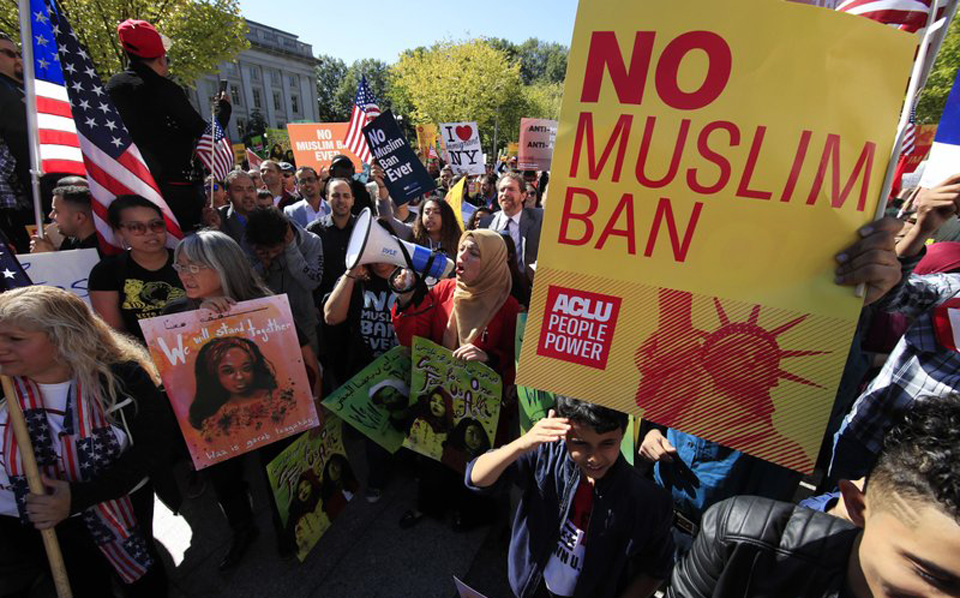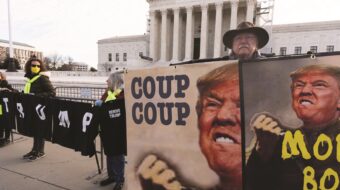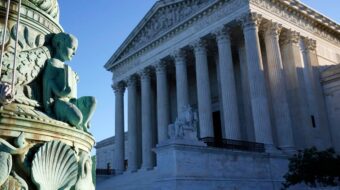
The Supreme Court on Monday allowed the Trump administration to fully enforce the September travel ban executive order affecting travelers from six mostly Muslim countries.
While this is not the final ruling on the travel ban—challengers of the order are currently working their way through federal court—it is a telling indication that the high court may ultimately approve the latest version of the ban.
Justices Ruth Bader Ginsburg and Sonia Sotomayor noted their dissent in the court’s order.
The remaining justices offered no explanation for their order, but the administration had said that blocking the full ban was causing “irreparable harm” because the policy is based on legitimate national security and foreign policy concerns.
Challengers of this and previous versions of the ban say that Trump’s order shows clear bias against Muslims, which he reinforced by re-tweeting anti-Muslim videos recently.
“President Trump’s anti-Muslim prejudice is no secret. He has repeatedly confirmed it, including just last week on Twitter. It’s unfortunate that the full ban can move forward for now, but this order does not address the merits of our claims,” said Omar Jadwat, director of the American Civil Liberties Union’s Immigrants Rights Project. The ACLU is representing some opponents of the ban.
Trump’s recent ban includes residents of Chad, Iran, Libya, Somalia, Syria, and Yemen. Lower courts previously ruled that individuals with a claim of a “bona fide” relationship to a U.S. citizen could not be barred from entry, including grandparents, cousins, and other relatives. The high court’s new order will no longer provide wide-ranging exemption from the ban, though visa officials may make exceptions on a case-by-case basis.
“I think it’s tipping the hand of the Supreme Court,” said David Levine, a University of California Hastings law school professor. “It suggests that from their understanding, the government is more likely to prevail on the merits than we might have thought.”
The San Francisco-based 9th U.S. Circuit Court of Appeals and the 4th U.S. Circuit Court of Appeals in Richmond, Virginia, will be holding arguments on the legality of the ban this week.












Comments